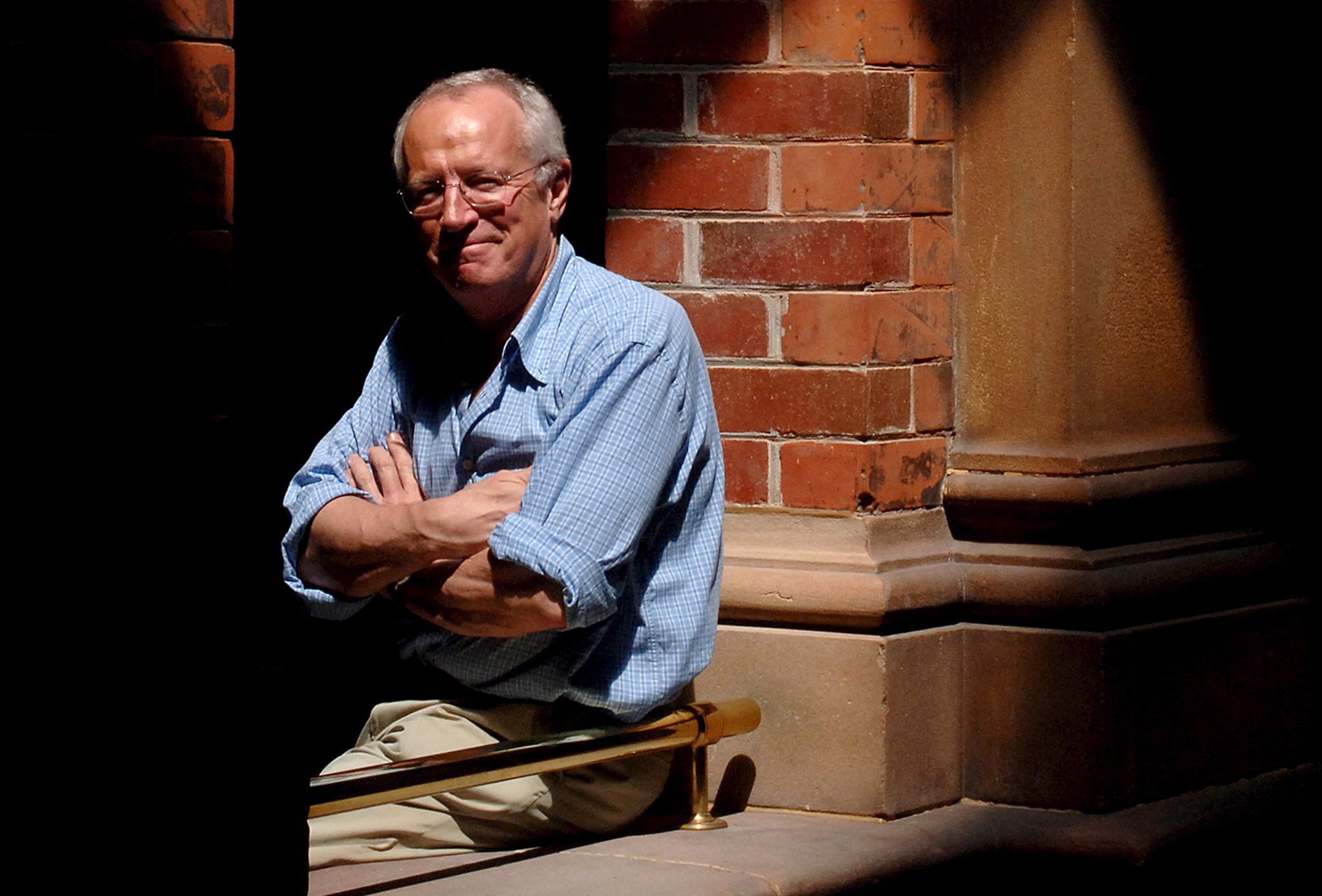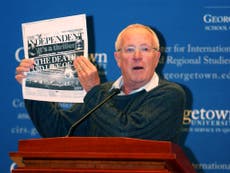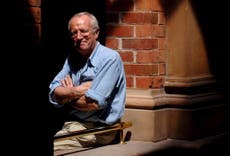28 April 1989: Generals fight for a Lebanese utopia
Robert Fisk, in his first report forThe Independent from Beirut, meets the Christians waging their ‘war of liberation’


Your support helps us to tell the story
From reproductive rights to climate change to Big Tech, The Independent is on the ground when the story is developing. Whether it's investigating the financials of Elon Musk's pro-Trump PAC or producing our latest documentary, 'The A Word', which shines a light on the American women fighting for reproductive rights, we know how important it is to parse out the facts from the messaging.
At such a critical moment in US history, we need reporters on the ground. Your donation allows us to keep sending journalists to speak to both sides of the story.
The Independent is trusted by Americans across the entire political spectrum. And unlike many other quality news outlets, we choose not to lock Americans out of our reporting and analysis with paywalls. We believe quality journalism should be available to everyone, paid for by those who can afford it.
Your support makes all the difference.The generals were quite jolly about it all. “Anything that detracts from Syria’s power is a victory for us,” one of them remarked as he sat with his colleagues in an ante-room of the presidential palace at Baabda, fingering a list of Syrian positions in the hills above Beirut. “We've everything to win and nothing to lose.”
This was not a sentiment likely to commend itself to the Arab League observers who will now have to patrol Beirut’s ceasefire lines to monitor the truce supposed to take effect today. And while General Michel Aoun’s senior officers were ruminating on their little victory yesterday, there were murmurs of discontent from his opponents, not least from Walid Jumblatt, the Druze leader, who held out little hope for the ceasefire.
The last time Arab League troops came to Beirut – from Sudan, Saudi Arabia, North Yemen and the United Arab Emirates in 1976 – their mission ended in quiet humiliation as, one by one, their contingents withdrew in protest at Syria’s policies in Lebanon. Now the return of an Arab League force, however diminutive, is in itself a humiliation for Syria’s proclaimed policy of peacekeeping in Lebanon.
But up at the presidential palace, the generals – who prefer to call their commanding officer “His Excellency the prime minister” – have a pretty shrewd idea of the problems awaiting the League’s observers. The clutch of Aoun advisers who sat around the table in the ante-room yesterday – a couple of generals and several political functionaries – still persisted in their utopian dream of a Lebanon without Syrians.
Yet the files and documents spread out in front of them suggested that even if the Arab League troops opened the roads between east and west Beirut, the Syrians would still be in a position to call the shots, in every sense of the word.
One file, for example, stated that the Syrian army had now massed 720 artillery pieces in the mountains, with batteries of long-range guns positioned down the coast at Damour, 12 miles south of the city, ready to renew the siege of the Christian sector.
According to the generals’ files (which might, of course, be overstating Syrian military strength for political reasons), the Syrians have 36 240mm mortars around Beirut airport and in the forests of the Metn hills. Twelve Syrian companies are recorded as having 216 “Stalin organ” multiple rocket-launchers.
General Hashem Moualla, the Syrian officer principally responsible for the bloody suppression of the Syrian city of Hama in 1982, is now said by the Lebanese generals to be commanding the Syrian 41st Regiment at Souk el-Gharb on the ridge above General Aoun’s palace, supported by two tank battalions.
General Aoun’s intelligence officers noted with satisfaction that the Syrians suffered casualties during the artillery battles. A radio intercept, for example, records that Major Omar Djibawi of the Syrian 35th Battalion was critically wounded in west Beirut last week. “We can tell you something else,” the general added. “Colonel Issam el-Ajjam of the Eighth Brigade in the Metn is in hospital in Damascus and he is very sick.” There was a ripple of laughter around the table. “He is in the Tishrin hospital,” the general said. “And he was not wounded in a car accident.” The functionaries giggled at the joke.
If nothing else, the Christian government has a strong line in propaganda. At the forefront of this particular battle is Mireille Aoun, the general's daughter, who is acting as unpaid secretary at the presidential palace, insisting to all visitors that her father’s “war of liberation” has changed everything in Lebanon. Everyone at Baabda yesterday appeared to believe they had received a silent mandate from the Muslims. “Believe me, we have been fighting for all the Lebanese,” General Aoun's legal adviser said. “All of them. And, believe me, we know what the Muslims really think.” But do they know what the Christians really think?
If news of Syrian casualties raises the morale of the Christian generals, it can be of little compensation to the citizens of east Beirut: the wreckage of the Dora oil refinery was still smoking yesterday, while the staff of St Nicholas’ Greek Orthodox church near Sassine Square have not even begun to pick up the rubble of roof beams, 100-year-old Russian crystal chandeliers and broken icons that cascaded to the floor when a Grad missile came through the roof. This was also part of the price of General Aoun’s little victory.
Following the death of Robert Fisk on 30 October 2020, The Independent has reproduced some of his best dispatches from 30 years of reporting


Join our commenting forum
Join thought-provoking conversations, follow other Independent readers and see their replies
Comments